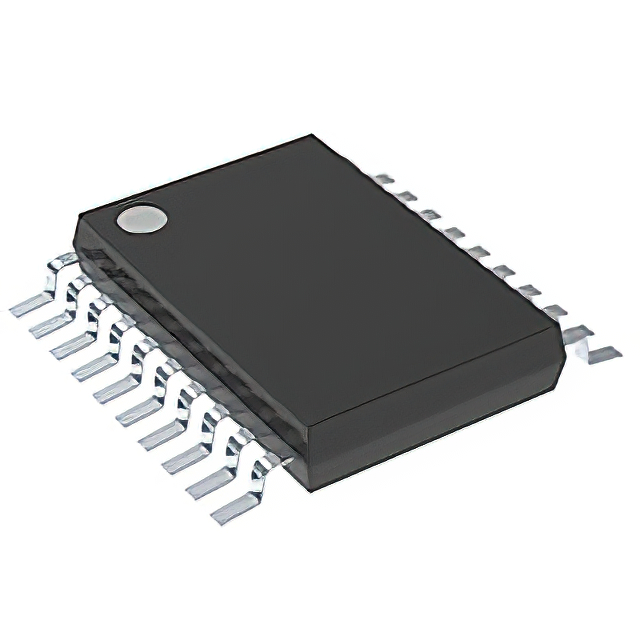SN74LVC374APW
Manufacturer No:
SN74LVC374APW
Manufacturer:
Description:
IC FF D-TYPE SNGL 8BIT 20TSSOP
Datasheet:
Delivery:





Payment:




In Stock : 288
Please send RFQ , we will respond immediately.









SN74LVC374APW Specifications
-
TypeParameter
-
Clock Frequency100 MHz
-
Package / Case20-TSSOP (0.173", 4.40mm Width)
-
Supplier Device Package20-TSSOP
-
Mounting TypeSurface Mount
-
Operating Temperature-40°C ~ 85°C (TA)
-
Input Capacitance4 pF
-
Current - Quiescent (Iq)10 µA
-
Voltage - Supply1.65V ~ 3.6V
-
Current - Output High, Low24mA, 24mA
-
Trigger TypePositive Edge
-
Max Propagation Delay @ V, Max CL7ns @ 3.3V, 50pF
-
Number of Bits per Element8
-
Number of Elements1
-
Output TypeTri-State, Non-Inverted
-
TypeD-Type
-
FunctionStandard
-
PackagingTube
-
PackagingBulk
-
Product StatusActive
-
Series74LVC
The SN74LVC374APW integrated circuit chip is a D-type flip-flop with a wide voltage operating range and low power consumption. Some advantages and application scenarios of this chip include:Advantages: 1. Wide voltage range: The chip can operate from 1.65V to 3.6V, making it compatible with a variety of systems and devices. 2. Low power consumption: The SN74LVC374APW chip is designed to optimize power consumption, making it suitable for battery-powered applications or energy-efficient systems. 3. High-speed operation: The chip has a high-speed data transfer capability, making it suitable for applications that require quick signal processing. 4. Schmitt trigger inputs: The chip's inputs are equipped with Schmitt trigger circuitry, ensuring a robust signal reception and reducing susceptibility to noise.Application scenarios: 1. Digital circuits: The SN74LVC374APW chip can be used in various digital applications such as data storage, address decoding, and buffering. 2. Microcontrollers: It can serve as an interface between a microcontroller and other devices, providing data synchronization and buffering. 3. Communication systems: The chip can be used in communication systems for signal conditioning, synchronization, and buffering purposes. 4. Industrial automation: It can be utilized in automated systems for data transfer, control, and synchronization of signals. 5. Consumer electronics: The chip can be used in various consumer electronics applications such as smartphones, tablets, and digital cameras for data storage, logic control, and interface purposes.It's important to note that depending on the specific requirements of the project or application, it is always essential to refer to the chip's datasheet and consult with technical experts to ensure accurate and proper usage.
SN74LVC374APW Relevant information







